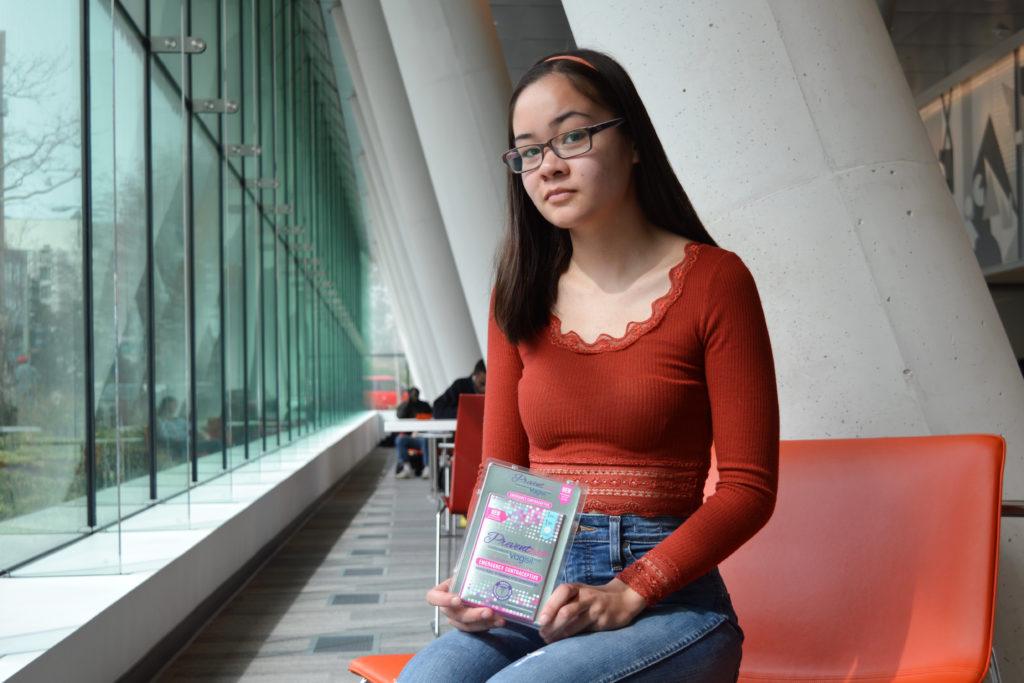Students and Foggy Bottom residents can now access Plan B for free.
A group of students launched a new off-campus organization Monday offering free emergency contraception to students and residents in need of the drug. Student leaders said the organization, called Foggy Bottom Plan B, will help increase the accessibility of Plan B, which is not provided by the Colonial Health Center and can only be purchased at drug stores like CVS for roughly $30 to $60.
“This is an entirely volunteer-based thing, this is a donation-based organization just looking to make our community better,” sophomore Dana Donovan, one of the organization’s leaders, said.
Donovan said the new organization parallels groups at other D.C.-area universities that have aimed to increase access to Plan B. Georgetown University’s H*yas For Choice began providing free Plan B last September, and George Mason University began offering the contraceptive in vending machines last October.
To receive Plan B, individuals must email [email protected], and a member of the group will respond as soon as possible to set up a time and place to meet. Members try to answer emails within 12 hours, according to the organization’s website.
Donovan said members of the group originally wanted to offer free Plan B on campus but faced administrative barriers while working with the CHC.
University spokeswoman Maralee Csellar said the CHC “would like to support health education and prevention” programs but cannot distribute medications like Plan B because the center is not a registered pharmacy.
Csellar added that officials in the Center for Student Engagement suggest students research the feasibility of adding vending machines with Plan B to campus as a “potential way to lower the cost and increase accessibility” to Plan B.
Donovan said the organization also features an advocacy component and hopes to collect more anecdotal evidence of the obstacles students face while trying to obtain the morning-after pill. The organization’s website features a link to a survey asking students whether they have purchased the drug, where they bought it from and how much it cost.
“The George Washington University has failed to provide affordable and accessible emergency contraception to its students,” the website reads.
Natalie Ioele, a junior participating in the group, said the organization, which is reliant upon donations, received 90 doses of emergency contraception from the Maryland-based abortion clinic Carafem, Georgetown’s H*yas for Choice and a Seattle-based contraception advocacy group. To keep the service running, members have also launched GoFundMe and PayPal accounts, which have raised more than $160 in the first 48 hours, she said.
Individuals who use the service can also donate money to the organization, according to the group’s website.
“As soon as we can see also what kind of need there is on campus and how willing people are to donate to this, hopefully, I think it will be kind of self-sustaining in the way that people can receive the service and donate,” Ioele said.
Blair Cox, a sophomore and another organization leader, added that the University should focus on students’ well-being, including unplanned pregnancies that serve as a “huge barrier” to education.
“If the University is concerned with making sure that we are fully cared for in all aspects of our lives, this is yet another way that they can continue to support students,” Cox said.
She said the organization initially intended to only benefit GW students, but now that members function off campus, they hope to help the greater Foggy Bottom area. They are advertising the organization through social media, primarily through their Facebook page and website, she said.
“This is not just supposed to service GW students, it’s supposed to be for the entire community,” Cox said.





